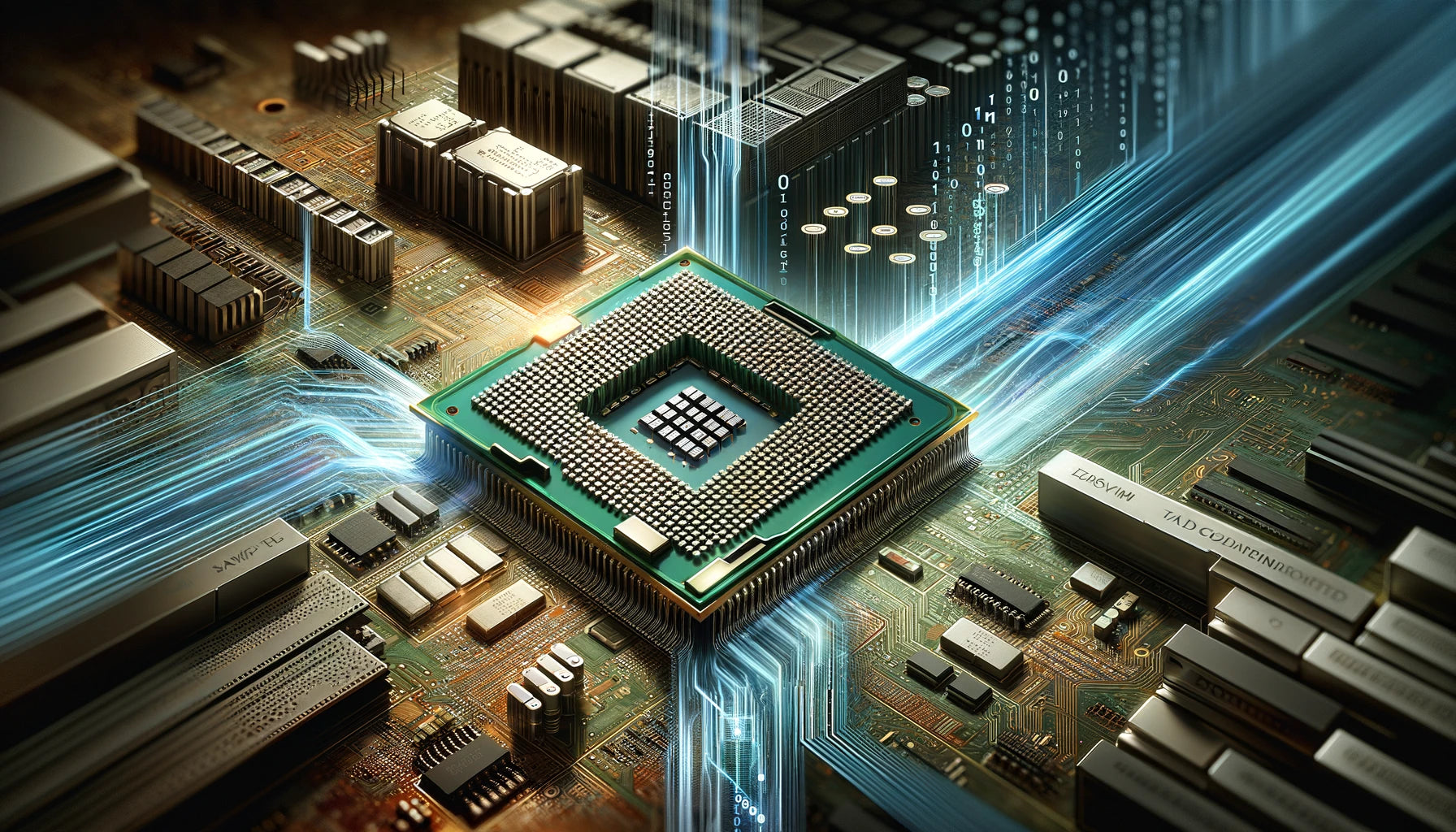Maximizing Performance and Investment: A Guide to the Dell PowerEdge R6515 CPU Options
Maximizing Performance and Investment: A guide to the Dell PowerEdge R6515 CPU Options
This blog helps diving on the CPU specifications and recommendations for the Dell PowerEdge R6515 with a deep insight into its capabilities and the diverse applications it can support. At the core of the PowerEdge R6515's performance lies its compatibility with AMD EPYC processors. This compatibility spans accross the Rome and Milan series (Zen 2 and Zen 3 architectures), and it is also prepared to accomodate the next generation Genoa (Zen 4 architectures), ensuring that the server remains at the forefront of technology advancements. With a single AMD SP3 socket, the R6515 is a power efficient machine capable of doing high end tasks.
What Type of Processors Should You Look For?
-
Low-End CPU Options
For Businesses that are budget-conscious but require reliable performance, the Dell PowerEdge R6515 offers several low-end AMD processor options. Models such as the AMD EPYC 7252, 7262, and 7282, which provide between 8 to 16 cores, are specifically designed to deliver a cost-effective performance approach without sacrificing quality. These processors are particularly suited for small to medium size business applications, entry-level virtualization, among other tasks that require efficient processing power without the need of high performance multi-threading capabilities.
-
Value-End CPU Choices
At middle range, AMD processors such as the 7402, 7532, and 7542 offer a middle ground with 24 to 32 cores. These CPUs are ideal for enterprises looking for a balance between price and performance. They are capable of handling a wider range of applications from moderate virtualization environments to more demanding databases and data analysis tasks. The value end processors ensure that businesses can scale their operations without incurring excessive financial costs, making them a perfect choice for growth oriented businesses.
-
High-End CPU Selections
For the most demanding applications, the Dell PowerEdge R6515 supports high-end processors like the EPYC 7662, 7763, and 7773X, all equipped with 64 cores. The powerhouse processors are designed to accomodate high end computing tasks and software, like Docker containers, large-scale virtualizations, cloud computing and other complex tasks. They are particularly beneficial for businesses that require exceptional processing capabilities to analyze vast amounts of data or to support large high performance software applications. With these CPUs the Dell PowerEdge R6515 becomes a critical asset in data centers and research institutions where cutting-edge technology is important.
Future Proofing with Genoa Architecture Compatibility
The readiness of the R6515 for the next generations AMD EPYC CPUs (Genoa Zen 4) architectures further emphasizes its position as a future-proof investment. This forward-looking compatibility means that businesses can anticipate longer service life and better return on investment from their server infrastucture. As the technology realm evolves and processing needs grow, the ability to upgrade to more advanced processors ensures that the R6515 can continue to meet the demands of tomorrow's computational prowesses.
Conclusion
The Dell PowerEdge R6515's CPU options cater to a broad spectrum of performance needs, from a budget-friendly, low-end processors to high-end choices for the most intensive tasks. By offering a wide range of AMD EPYC processors, this server ensures that businesses of all sizes can find a configuration that best suits their operational requirements and budget constraints. With the added benefit of being future-proof through compatibility with the next generation Genoa (Zen 4 series) processors, the Dell PowerEdge R6515 represents a smart investment for companies looking to leverage cutting-edge technology to drive their growth and innovation.
Check Out CPUs for the R6515Check Out our R6515 Configurator

